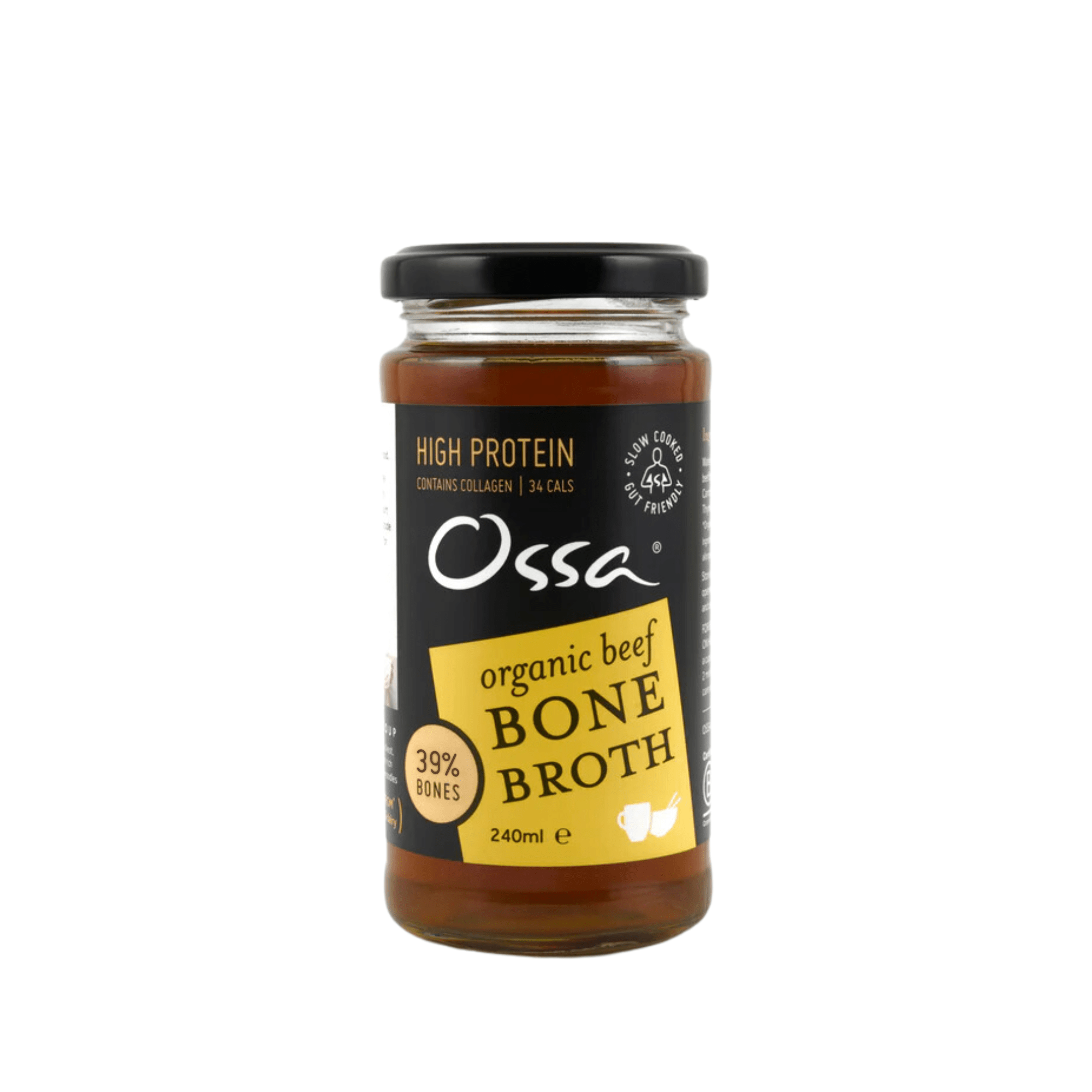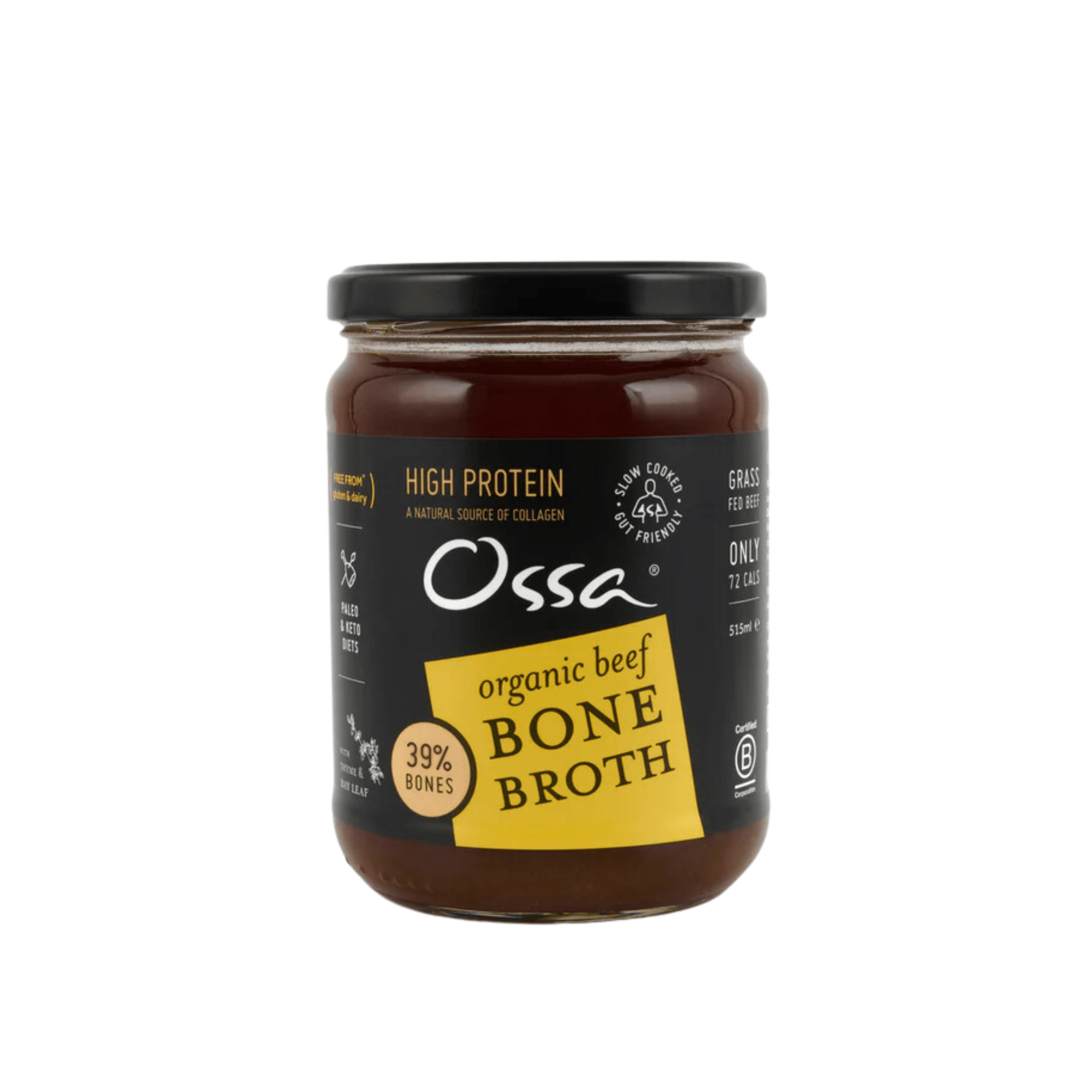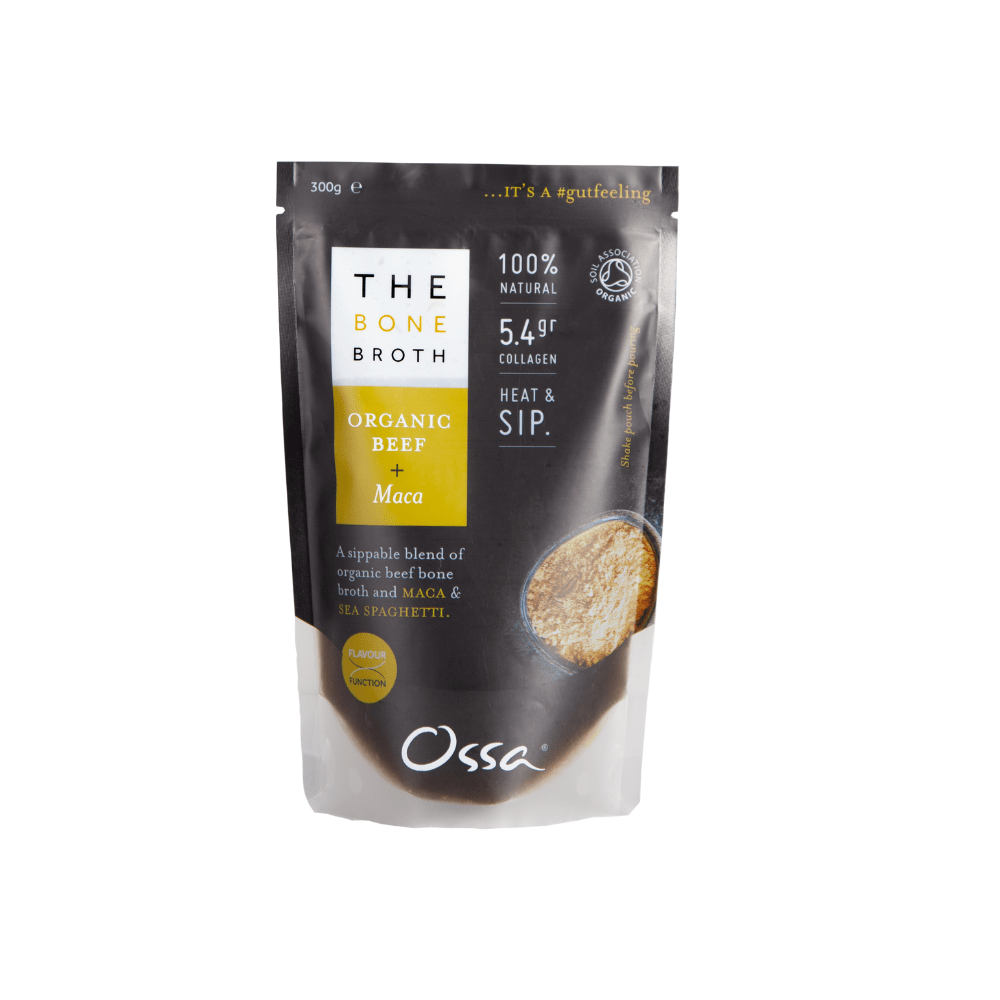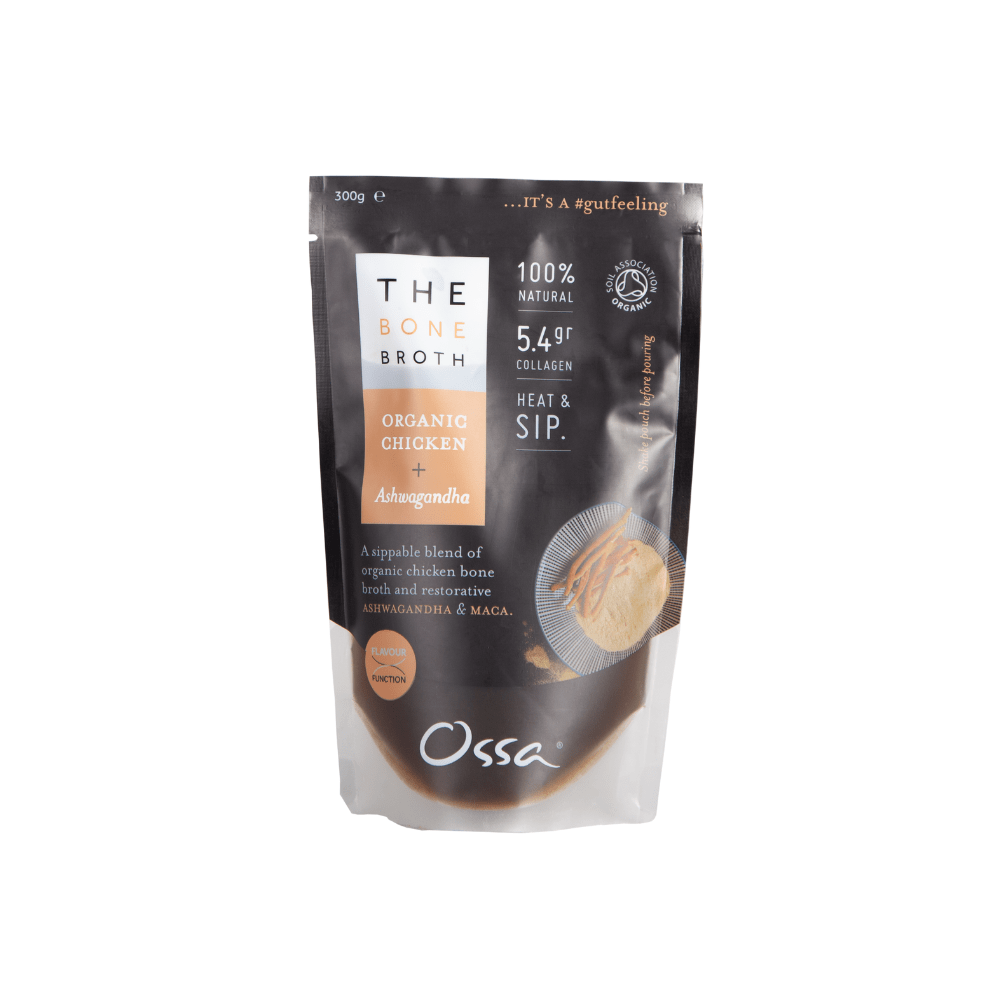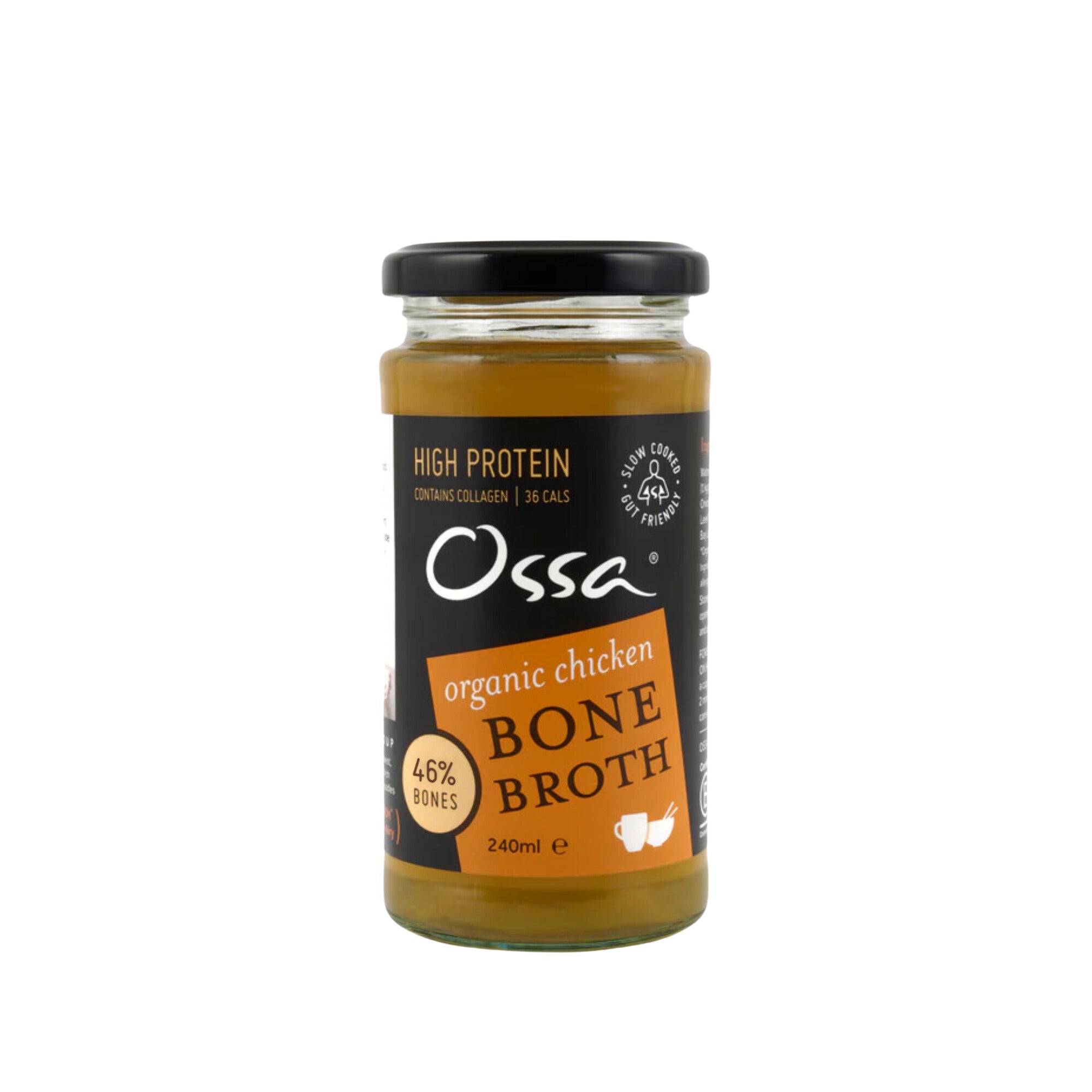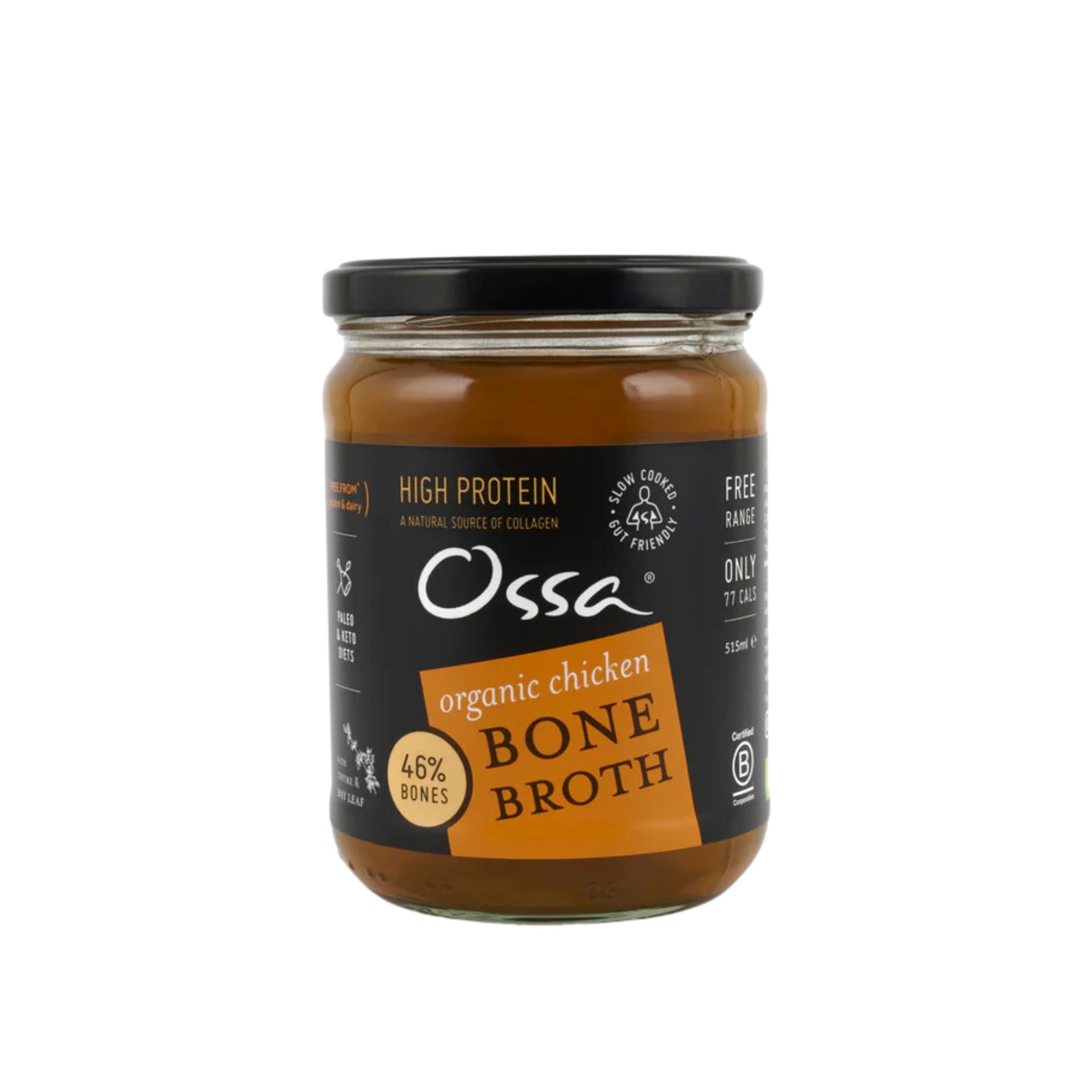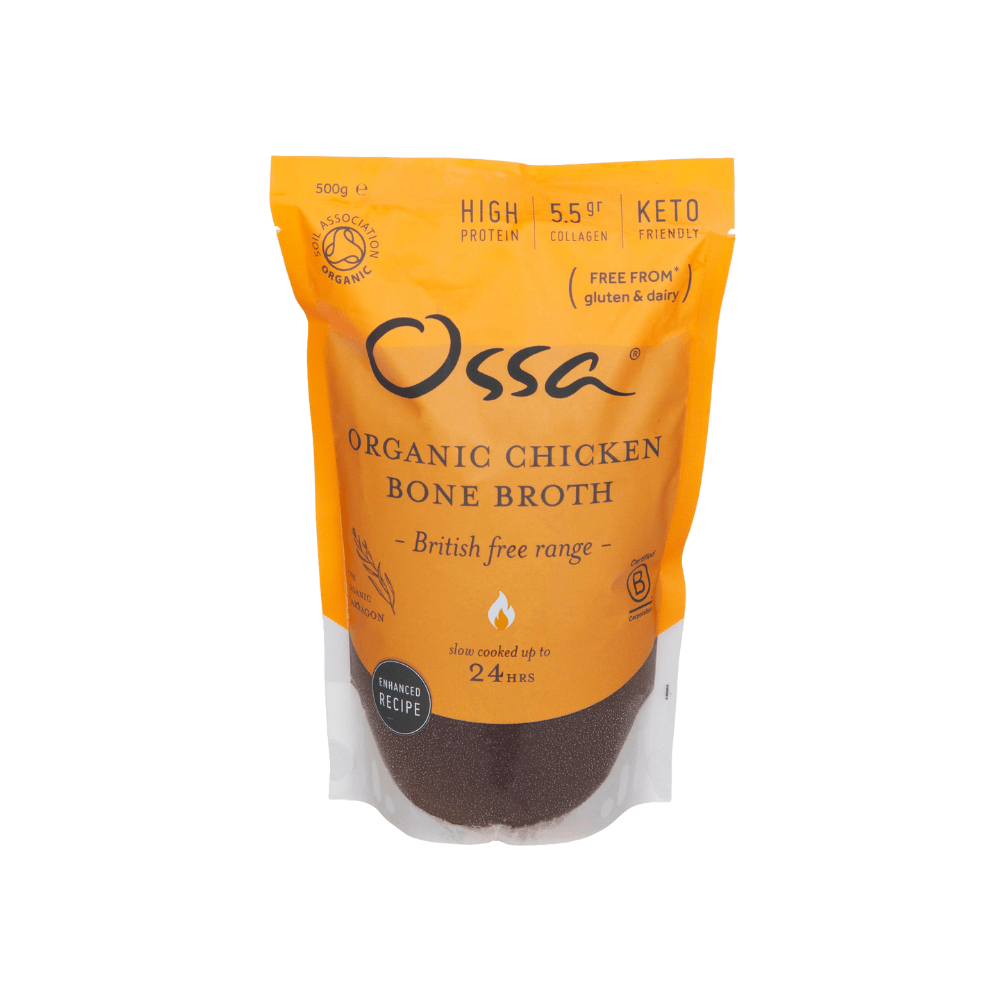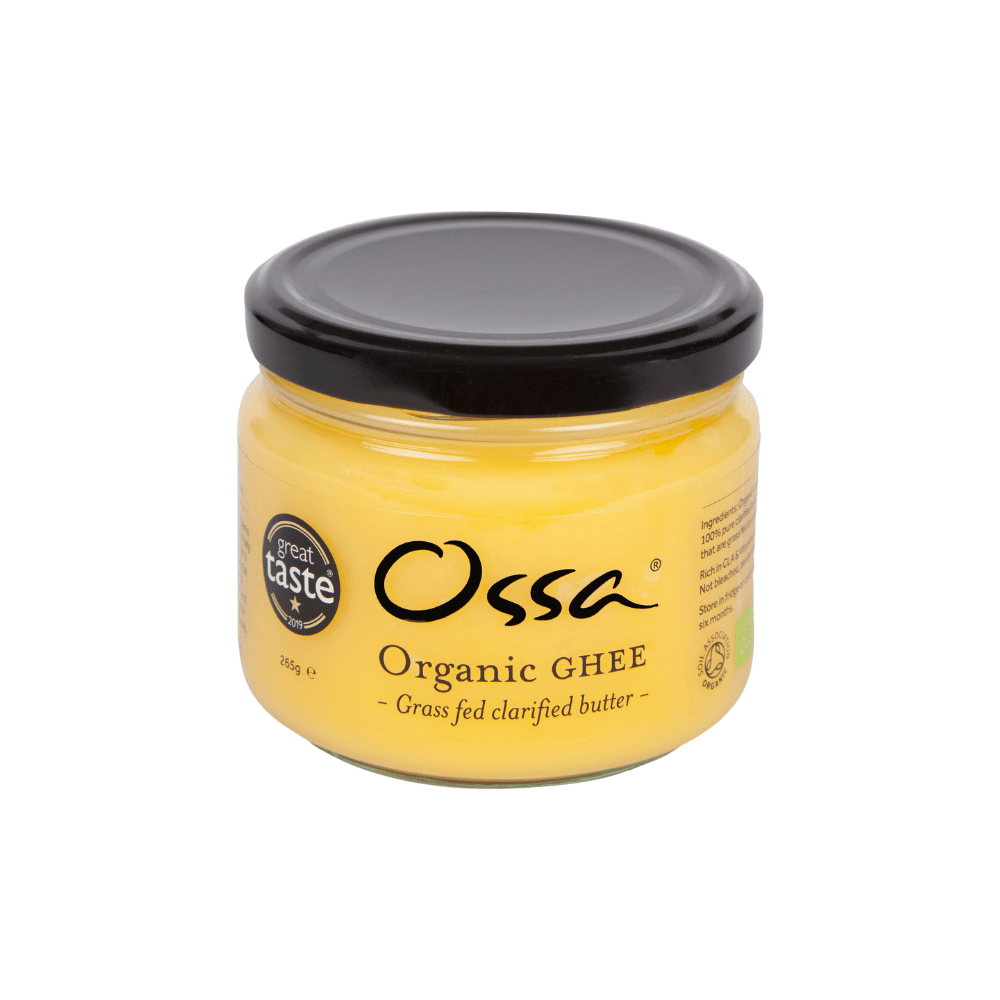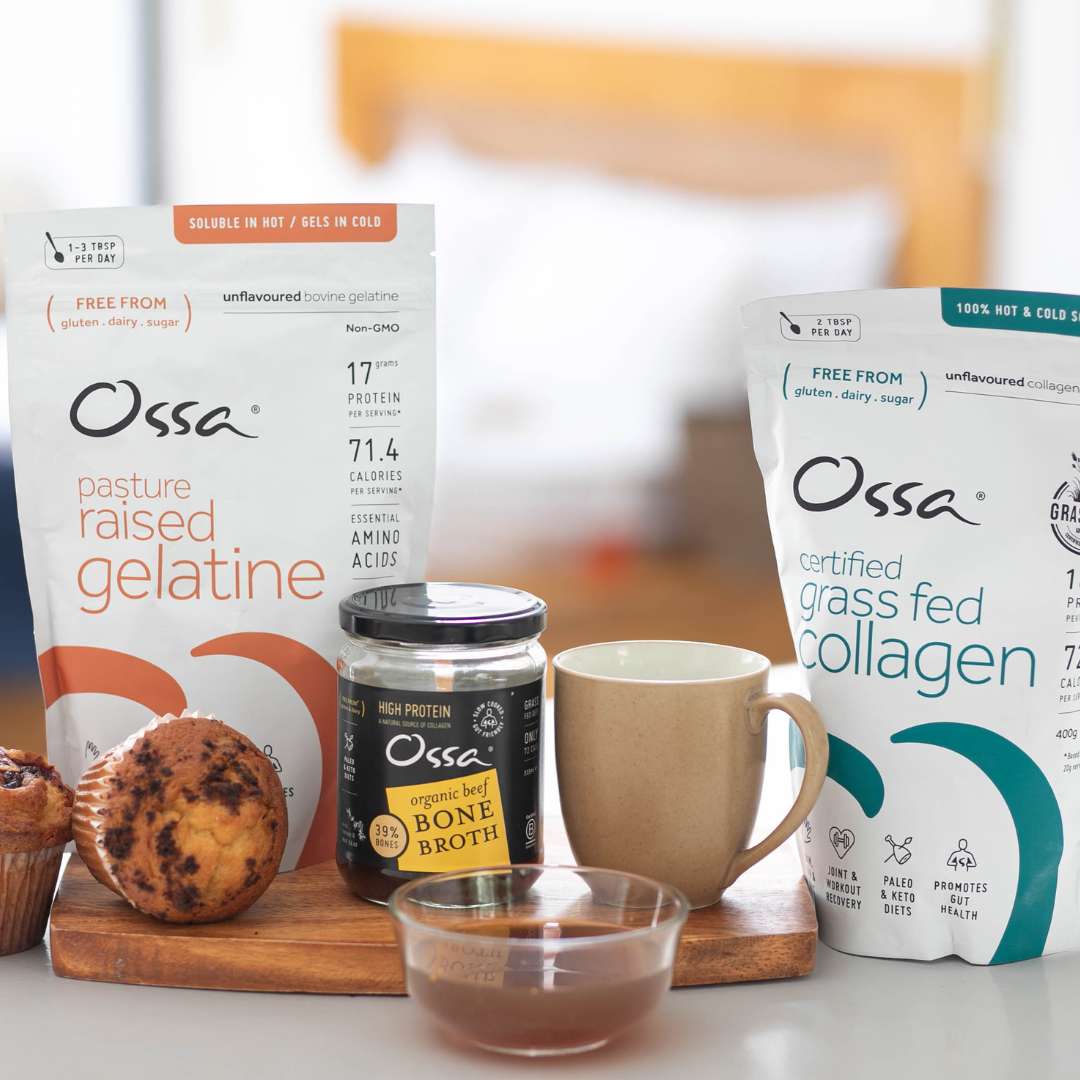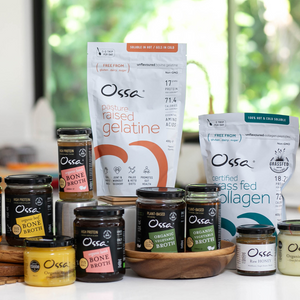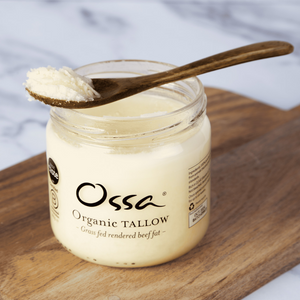Collagen is one of the most abundant proteins in the human body. It holds our structure together skin, joints, bones, ligaments, and even our gut lining all rely on this vital protein. But did you know there are different types of collagen, each with their own role? If you’re confused about which collagen to take or how to use it, you’re not alone. We get asked this all the time.
We believe in getting collagen the ancestral way through real food like bone broth, gelatine, and carefully sourced collagen powders. But even within these natural sources, there are different types of collagen that serve different purposes. Understanding what each type does helps you choose what your body needs most, whether you’re recovering from injury, supporting your skin, or working on gut repair.
This blog walks through the major types of collagen, their benefits, and how our products provide you with powerful, bioavailable protein supplements without the synthetic fluff.
Why Collagen Matters
Collagen makes up nearly 30% of the protein in your body. It’s what keeps your joints cushioned, your skin firm, your nails strong, and your digestive tract sealed. But after your mid-twenties, collagen production begins to slow down. That’s when many people start to notice aching joints, less elastic skin, or slower recovery from workouts or injury.
Supplementing with collagen-rich foods can support your body’s natural repair and regeneration processes. But not all collagen is the same. There are over 20 types in total, but three dominate when it comes to functional benefits:
-
Type I
-
Type II
-
Type III
Let’s break down what each one does and where to find it.
Type I Collagen: Skin, Hair, Nails, Bones
Where it’s found:
-
Marine collagen
-
Beef collagen
-
Bone broth
-
Gelatine
What it does:
Type I collagen makes up 90% of your body’s collagen. It’s the structural powerhouse behind skin elasticity, hair thickness, nail growth, strong tendons, and mineral-dense bones.
When you think of anti-ageing, skin healing, or postnatal recovery, this is the collagen you’re usually looking for. It’s particularly important for wound healing, as it supports new tissue growth and strengthens the skin barrier.
Who needs it most:
-
Anyone focused on beauty-from-within
-
Those healing from wounds, stretch marks, or scars
-
Individuals looking to support bone density
-
Postpartum mothers
Our Tip:
You can get Type I collagen by slow-simmering bones (like in our Beef Bone Broth) or using powdered beef collagen peptides. Even our Gelatine is a rich source, especially when used in cooking.
Type II Collagen: Joints, Cartilage, Flexibility
Where it’s found:
-
Cartilage-rich cuts
-
Collagen made from chicken sternum
What it does:
Type II collagen is the main protein in cartilage. If you’re experiencing creaky knees, stiff hips, or limited flexibility, this is the type to focus on. It cushions the joints and prevents bones from rubbing against each other.
Unlike Type I and III, Type II is not as concentrated in skin or connective tissues it’s focused on movement, comfort, and recovery.
Who needs it most:
-
Athletes or active individuals
-
People recovering from joint injuries
-
Older adults with arthritis or joint stiffness
-
Anyone with cartilage degradation
OurTip:
Our Free-Range Chicken Bone Broth is naturally high in Type II collagen. Drinking a warm cup daily provides gentle, food-based joint support without relying on synthetic supplements.
Type III Collagen: Gut Lining, Organs, Elasticity
Where it’s found:
-
Alongside Type I in collagen
-
In organs, skin, and intestinal walls
What it does:
Type III collagen works hand-in-hand with Type I, but plays a unique role in elasticity especially in arteries, the intestinal wall, and soft tissues. It’s particularly crucial for gut health, as it helps repair the mucosal lining of the digestive tract and prevent leaky gut.
It also plays a role in blood vessel structure and wound healing.
Who needs it most:
-
Those with gut inflammation or digestive issues
-
Anyone healing from surgery or trauma
-
Individuals focused on long-term vascular and tissue repair
OurTip:
When we talk about gut health, we always come back to collagen. Our Gelatine is a gentle, versatile way to get both Type I and III. Whether in smoothies, gummies, or soups, it’s a daily support your gut will thank you for.
So... Which One Do You Need?
The short answer? Most people benefit from a combination of Types I, II, and III. Your body isn’t made of just one type of tissue, so your protein supplements shouldn’t be either.
Here’s a quick cheat sheet:
|
Goal |
Collagen Type |
Best Source |
|
Skin healing & elasticity |
Type I |
Beef collagen, gelatine, bone broth |
|
Gut health & repair |
Type III |
Bone broth, gelatine |
|
Joint support & flexibility |
Type II |
Chicken bone broth |
|
Bone strength & density |
Type I |
Beef collagen, broth |
|
Wound healing & recovery |
Type I + III |
Collagen-rich broths |
By rotating or combining these sources throughout your week, you can give your body a full spectrum of support in ways it will actually absorb.
Why Food-Based Collagen Is Superior
There are thousands of collagen powders on the market, but not all are created equal. Many are highly processed, flavoured, or filled with additives that work against your goals. Others lack essential cofactors like amino acids, minerals, or natural fats that help collagen do its job.
With Ossa Organic, you’re not just getting collagen you’re getting the real food context it comes from.
Food-based collagen isn’t just a protein supplement it’s nourishment your body recognises and uses intuitively.
Beyond Skin Deep: Collagen & Gut-Brain Health
It’s not just about glowing skin or strong joints. Collagen plays a vital role in your nervous system and gut-brain axis. Glycine, one of collagen’s primary amino acids, promotes calm, improves sleep, and supports memory. It’s also crucial for detoxification and liver function.
If you’ve been feeling anxious, foggy, or sluggish, collagen might help bring your system back into balance.
Supporting Collagen Production Naturally
While supplementation helps, don’t forget that your body also needs certain nutrients to make collagen on its own:
-
Vitamin C – found in citrus, berries, and leafy greens
-
Zinc – in red meat, pumpkin seeds, and shellfish
-
Copper – from organ meats and nuts
-
Healthy fats – like tallow, and ghe
-
Amino acids – from broth, eggs, meat, and gelatine
Using our products gives you more than collagen it provides these cofactors too. That’s why real food always wins.
Our Commitment to Clean Collagen
We believe in ancestral nutrition. That means honouring traditional preparation methods, using only grass-fed or organic animals, and never compromising on sourcing. We don’t chase trends. We return to what’s always worked.
That’s why every product you’ll find here from our collagen-rich broths to our pure gelatine can be trusted to support your body the way nature intended.
Choose Collagen That Works With You
Whether you’re looking to support joint health, heal your gut, or simply age well, collagen plays a central role. But more than just taking a supplement, it’s about how and where you get it.
Food-based collagen from Ossa Organic gives you the most bioavailable, complete protein supplements without synthetic additives or marketing fluff. Just real nourishment for real life.
And remember: the best protein supplement isn’t the trendiest one. It’s the one your body knows how to use.


